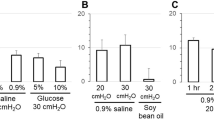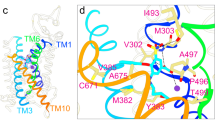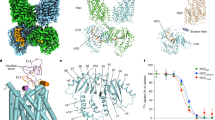Abstract
A CONSIDERABLE number of aromatic acids are known to be excreted by the renal tubules. The chemical structure of these compounds shows much variety, and it does not seem easy to find any property common to them which is not also shared by substances not excreted by the tubules. However, in every case hitherto investigated, the tubular excretion of any anion is reversibly depressed by the presence of considerable amounts of other anions excreted by the tubules. This effect is usually demonstrated by the use of "Diodrast" or hippuric acid as the depressing agent. The phenomenon is often regarded as an indication that the excretion of these compounds is effected by a common mechanism, or by intimately linked mechanisms.
This is a preview of subscription content, access via your institution
Access options
Subscribe to this journal
Receive 51 print issues and online access
$199.00 per year
only $3.90 per issue
Buy this article
- Purchase on Springer Link
- Instant access to full article PDF
Prices may be subject to local taxes which are calculated during checkout
Similar content being viewed by others
References
Pitts, Ann. Rev. Physiol., 8, 199 (1946).
Bonsnes, Dill and Dana, J. Clin. Invest., 23, 776 (1944).
Author information
Authors and Affiliations
Rights and permissions
About this article
Cite this article
SPERBER, I. Specific and Non-specific Competition in Tubular Excretion. Nature 161, 236–237 (1948). https://doi.org/10.1038/161236b0
Issue Date:
DOI: https://doi.org/10.1038/161236b0
Comments
By submitting a comment you agree to abide by our Terms and Community Guidelines. If you find something abusive or that does not comply with our terms or guidelines please flag it as inappropriate.



